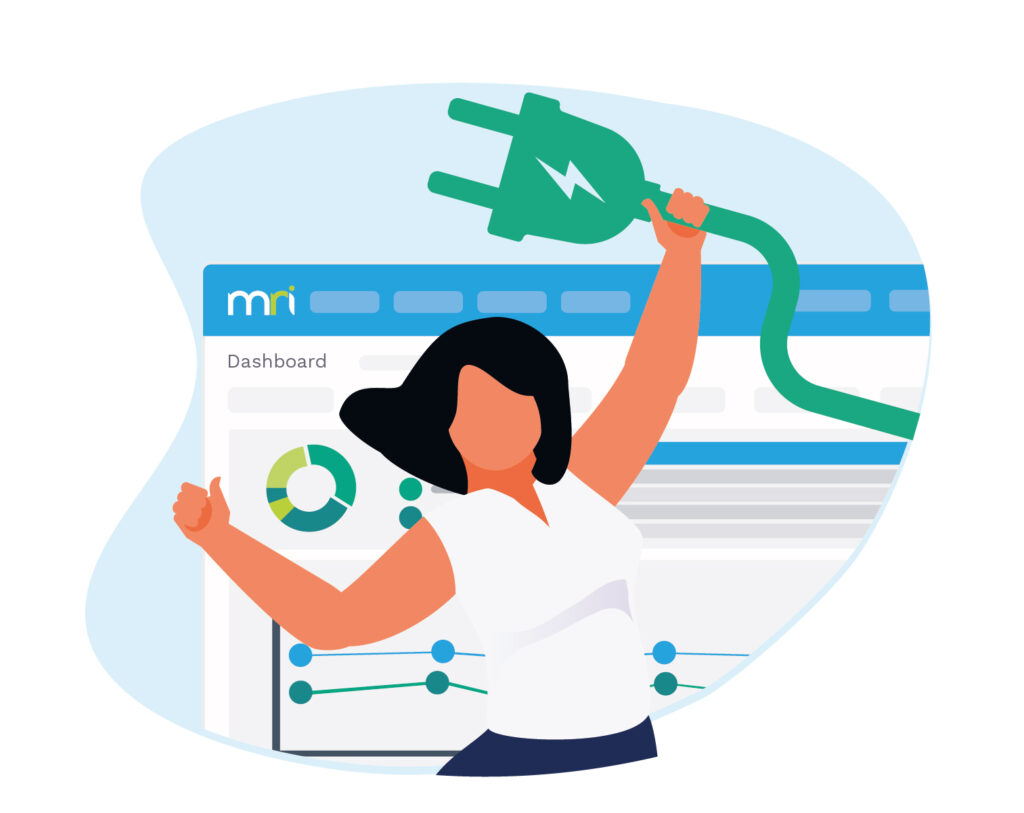What is energy management?
As energy prices soar globally and the pressure to reduce emissions and take climate action increases, more and more businesses are becoming aware of the importance of effective energy management.
Regardless of industry sector, energy is a large operational expense for the majority of businesses and with uncertainty around prices due a number of political and environmental factors, staying on top of your business’ energy usage is more important than ever.
In this blog, we will explain everything you need to know about energy management, including why it is important to your business and how it works.
What is energy management and why is it important?
What is energy management?
Energy management is the process of proactively measuring, controlling and optimising the use of energy resources in various sectors, including residential, commercial and industrial. It involves implementing strategies and adopting practices to ensure efficient energy consumption, reduce waste and lower costs while minimising environmental impact and meeting environmental, social and governance goals.
Included in energy management is also the continuous monitoring and improvement of energy usage systems across a business or portfolio, using the Plan-Do-Check-Act cycle.
This involves:
Plan– diagnose areas for improvement and prioritise them in terms of business and consumer needs, then develop a plan using realistic objectives and defined KPIs.
Do– carry out the plan, ensuring colleagues are given the appropriate training to do so, whilst collecting data throughout the process.
Check– analyse the results and identify key areas of success as well as pinpointing problems or failures.
Act– adjust the plans to correct any problems, analyse any failures and fine tune the process for operational ease.
Many businesses adopt the use of energy management software to store and analyse data, as well as build reports and workflows.
Why is it important?
A robust energy management strategy helps businesses to better manage energy consumption and environmental impact across their portfolios. It also allows businesses to improve energy-related decision making by ensuring accurate, data-driven reporting is informing every choice.
Facility performance will also be improved, as energy data analysis can indicate where efficiencies need to be built in, and where opportunities for smarter usage are present.
Operating costs will also reduce, as more intelligent energy use means less overall consumption. Effective energy management involves implementing more streamlined management operations, meaning staff time can be focussed on more value-adding activities.
Compliance is an ever-evolving landscape and businesses need to be able to adapt their management processes to ensure they can prove they meet regulatory and legislative obligations, and energy management is crucial in making this happen. With energy management, data and reports to support any new regulations around energy use or emissions can be easily gathered.
Net Zero goals are being worked towards globally, and for businesses, reaching Net Zero means implementing a strong strategy. With effective energy management, Net Zero is far more feasible.
What factors contribute to high energy consumption?
In a business, high energy consumption is affected by a number of factors and will differ greatly across various business types and sectors. Below are just some of the influences which impact consumption rates:
- Outside air temperature and environmental conditions are a key contributor, as heating and air conditioning systems can be high consumers.
- Since the COVID-19 pandemic, requirements for ventilation systems to perform increased air changes in order to improve air quality mean higher consumption – an increased rate of air changes and ventilation system usage, means a higher energy usage.
- Occupancy of a site is also affected. The more people on site, the more appliances are used and therefore the more energy is consumed throughout hours of operation.
- Old or faulty assets can lead to higher energy consumption and therefore increased costs and emissions.
- In industry, energy usage is strongly linked to production output as manufacturing and treatment processes utilise a number of different utilities.
Why are energy management programmes important?
Implementing energy management programmes at a strategic level is becoming more widespread as organisations are realising the significant benefits that can be achieved. Below we explore some of the key drivers for placing emphasis on such programmes.
Carbon Dioxide from energy is the dominant cause of Greenhouse gas emissions for most companies. To meet ESG and net zero targets, energy management programmes are vital in reducing energy-related emissions.
Energy is typically one of the largest operating expenses, and with rising prices it’s likely to continue as such. Energy management programmes help to manage and mitigate against rising costs and lower operational expenses overall.
Governance and legislative requirements are continually increasing in terms of energy consumption and usage. With an effective energy management programme, businesses can ensure they maintain compliance and can nurture a paper-trail to show responsible management and measurement.
ESG affects corporate value from multiple angles. ESG performance helps ease corporate financing limitations, enhance operational efficiency and lessen corporate financial risk. It also increases stake- holder and investor confidence.
Energy continues to have wider and more serious implications on the grid. By improving energy performance across businesses and pushing forward energy efficiency initiatives, pressure on national and global energy grids is lessened, minimising the risk of grid failure.
How can businesses track their energy usage?
Firstly, companies need to identify and understand their energy usage KPIs and develop a clear plan of what they want to achieve. For example, if the goal is to cut costs, then KPIs will be budget-related and tracking of energy spend will be central to this. If the goal is to reduce emissions, then tracking greenhouse gas and carbon emissions will be central.
Setting a strategic framework for meeting targets is vital to ensure success. Existing frameworks such as ISO 50001 or Science Based Targets provide structure and a clearly defined path towards meeting emission based targets.
It’s also important to identify what energy conservation measures are most appropriate for your business and your targets. Pinpointing high-consumption assets or systems, or areas where wastage can be cut is a starting point for identifying low cost, high impact measures.
Ensuring that savings made through the implementation of planned measures can be demonstrated is vital to not only set benchmarks for KPIs, but also to validate the value of the work to stakeholders. This can be achieved through continuous and consistent monitoring and measurement.
How do businesses benefit from energy management software?
Energy management software automates the process and provides a range of features and functions enabling energy, facilities and sustainability managers to set, monitor and meet all energy related targets. Key benefits of utilising energy management software include:
- Reduce energy consumption, costs and carbon emissions by up to 30%.
- Centralise and aggregate all available energy data for detailed analysis and make meaningful decisions about consumption.
- Access real-time energy costs by area (electricity, water, gas, etc.) and by asset to detect anomalies during normal and off-hour operating timeframes.
- Cut time spent building energy reports. Capability to build reports for legislation and energy compliance regulations with robust reporting capabilities.
- Decrease water consumption and detect leaks.
- Track progress towards your carbon reduction and ESG targets and automate greenhouse gas emissions reporting.
- Set realistic goals and targets, transform energy commitments into action, and publish clear and accurate results to your stakeholders for key energy consumption decisions.
How MRI Software can help you manage your energy consumption
At MRI Software, we’re passionate about helping you leverage technology to drive greater operational efficiencies. Specialist energy management software is becoming more and more instrumental in enabling organisations to mitigate energy rates, reduce waste and comply with legislation.
With over 30,000 users across more than 260,000 buildings using our energy management software, contact us today to find out more about how our solution can enable you to gain total visibility and take full control over your energy consumption.

Spotlight webinar: The latest & greatest enhancements to MRI Energy

